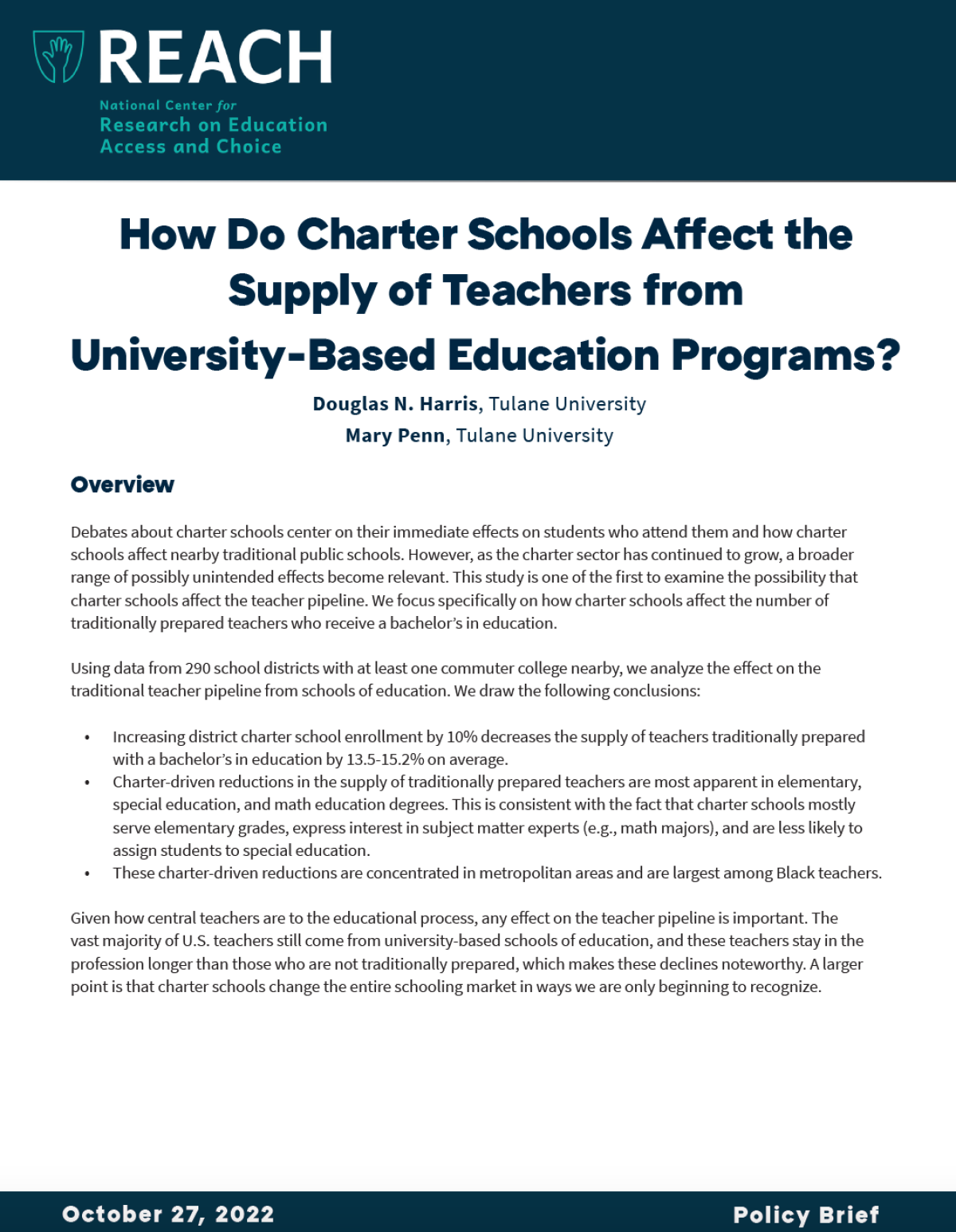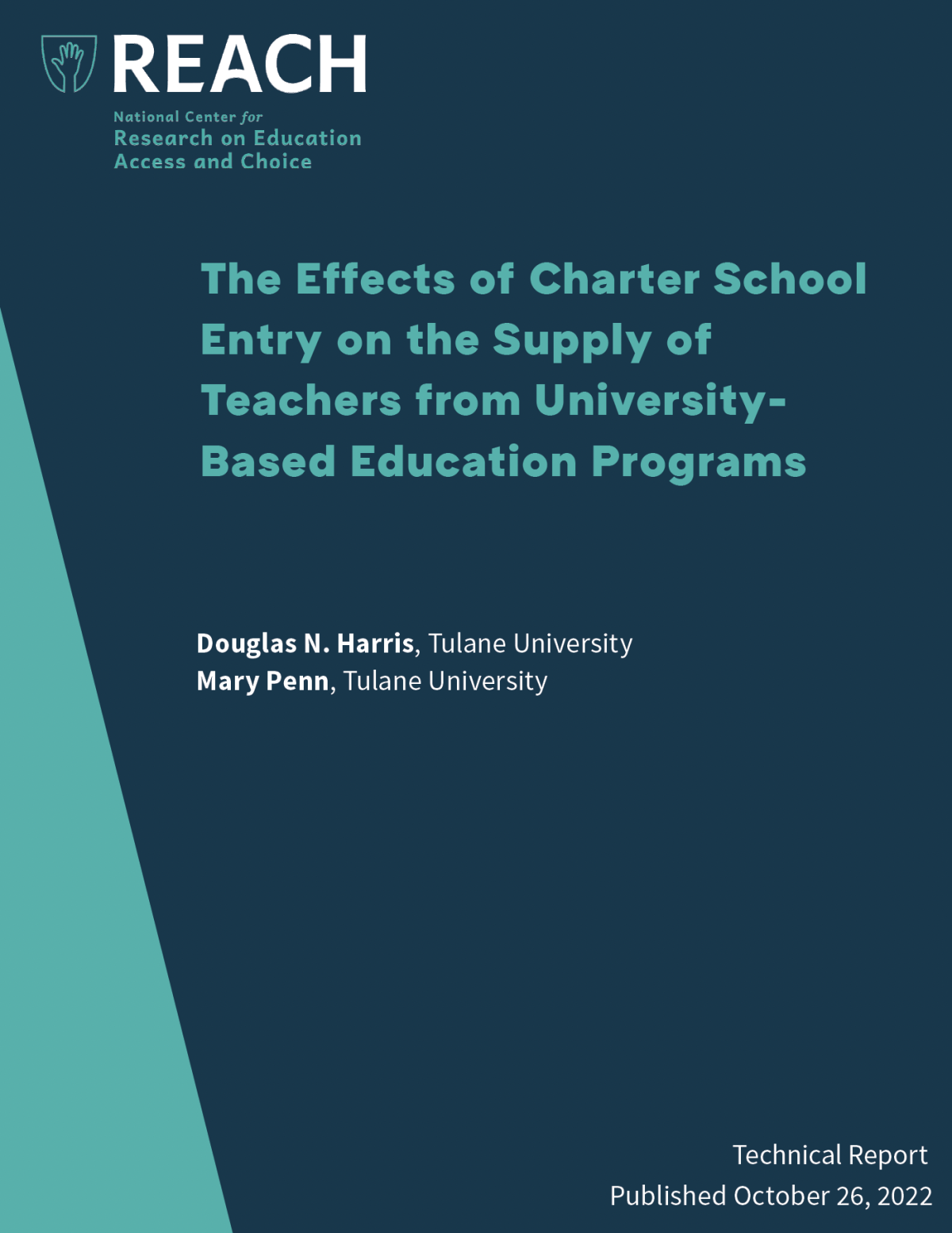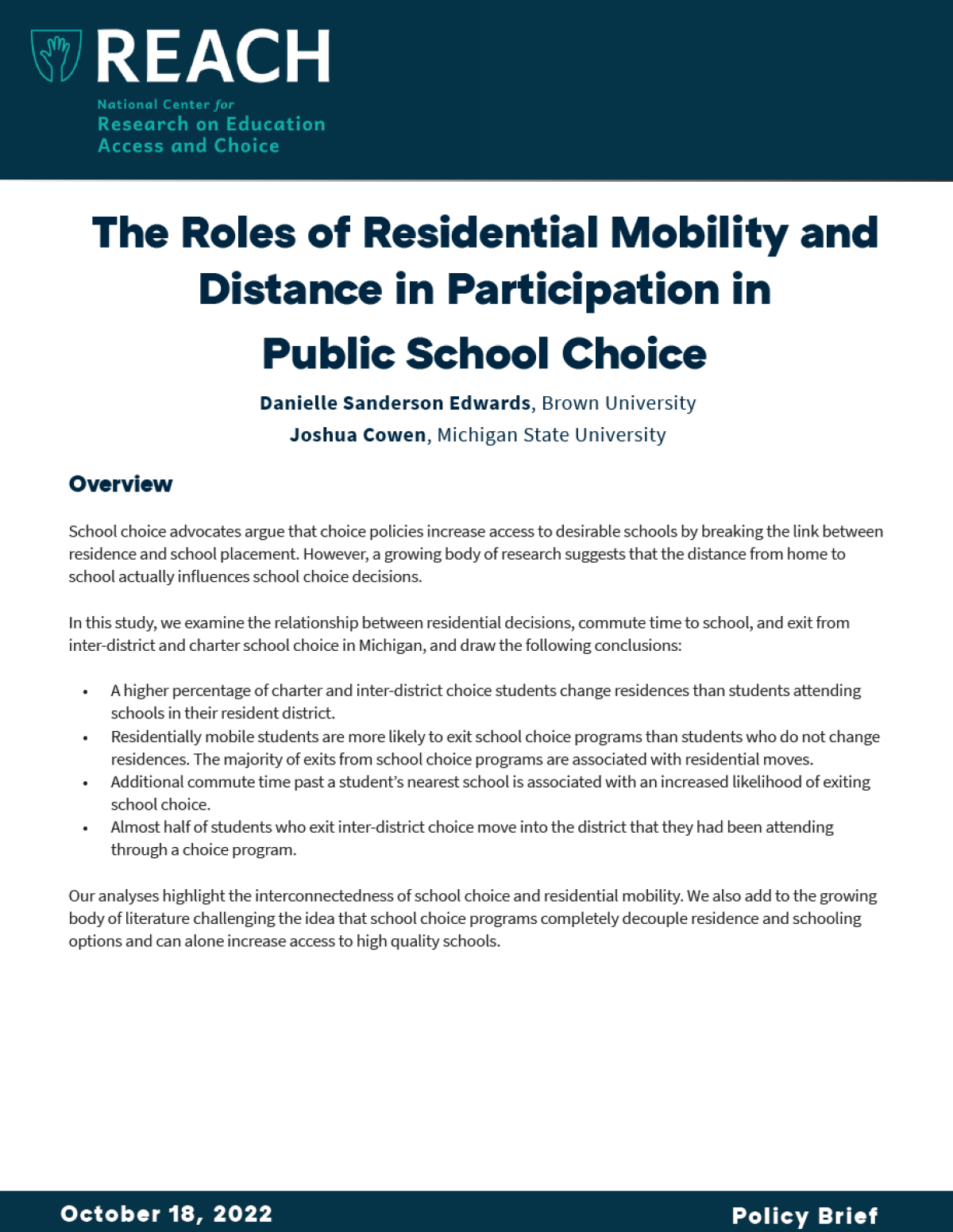Debates about charter schools center on their immediate effects on students who attend them and how charter schools affect nearby traditional public schools. However, as the charter sector has continued to grow, a broader range of possibly unintended effects become relevant. This study is one of the first to examine the possibility that charter schools affect the teacher pipeline. We focus specifically on how charter schools affect the number of traditionally prepared teachers who receive a bachelor’s in education.
Using data from 290 school districts with at least one commuter college nearby, we analyze the effect on the traditional teacher pipeline from schools of education. We draw the following conclusions:
- Increasing district charter school enrollment by 10% decreases the supply of teachers traditionally prepared with a bachelor’s in education by 13.5-15.2% on average.
- Charter-driven reductions in the supply of traditionally prepared teachers are most apparent in elementary, special education, and math education degrees. This is consistent with the fact that charter schools mostly serve elementary grades, express interest in subject matter experts (e.g., math majors), and are less likely to assign students to special education.
- These charter-driven reductions are concentrated in metropolitan areas and are largest among Black teachers.
Given how central teachers are to the educational process, any effect on the teacher pipeline is important. The vast majority of U.S. teachers still come from university-based schools of education, and these teachers stay in the profession longer than those who are not traditionally prepared, which makes these declines noteworthy. A larger point is that charter schools change the entire schooling market in ways we are only beginning to recognize.


